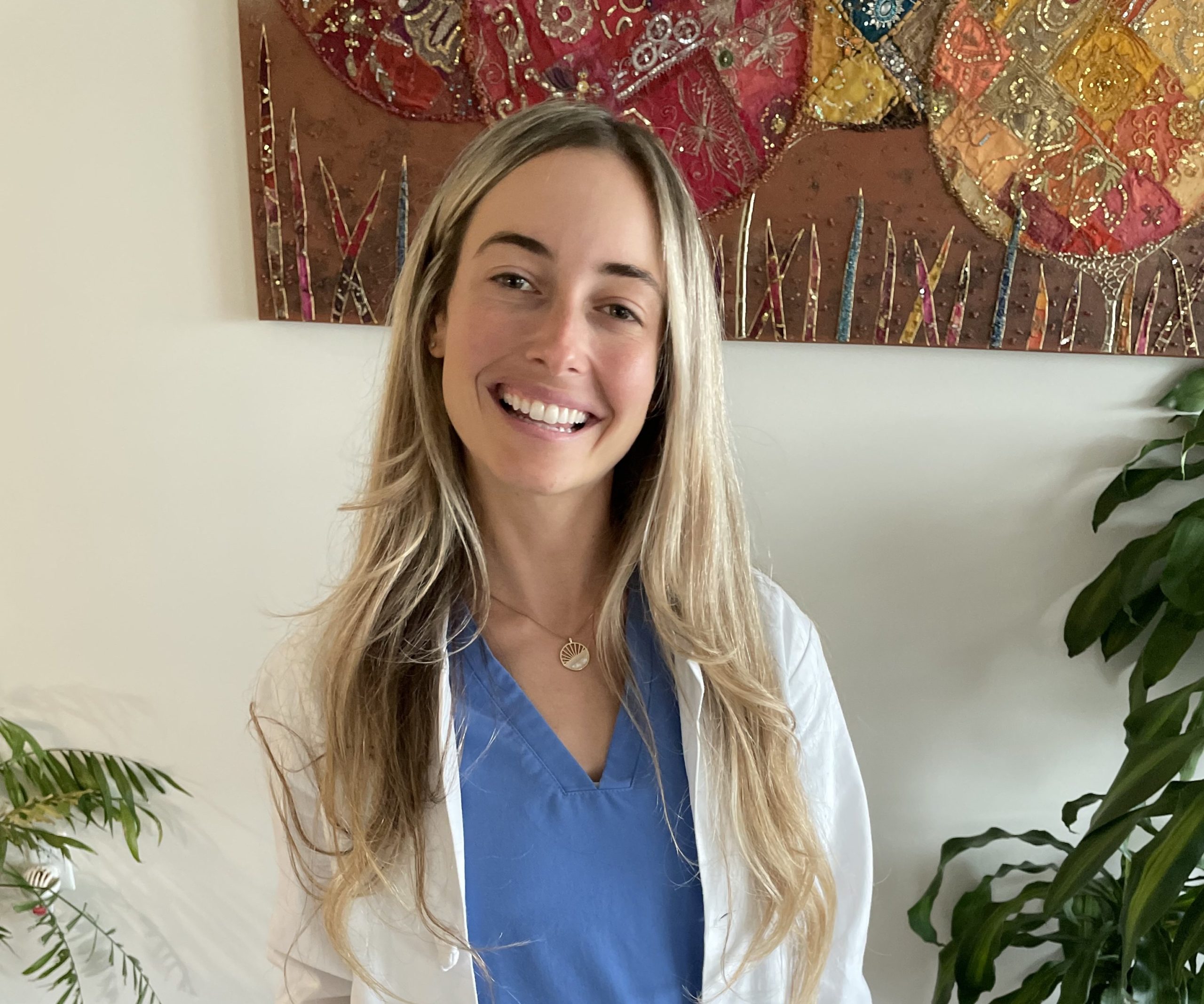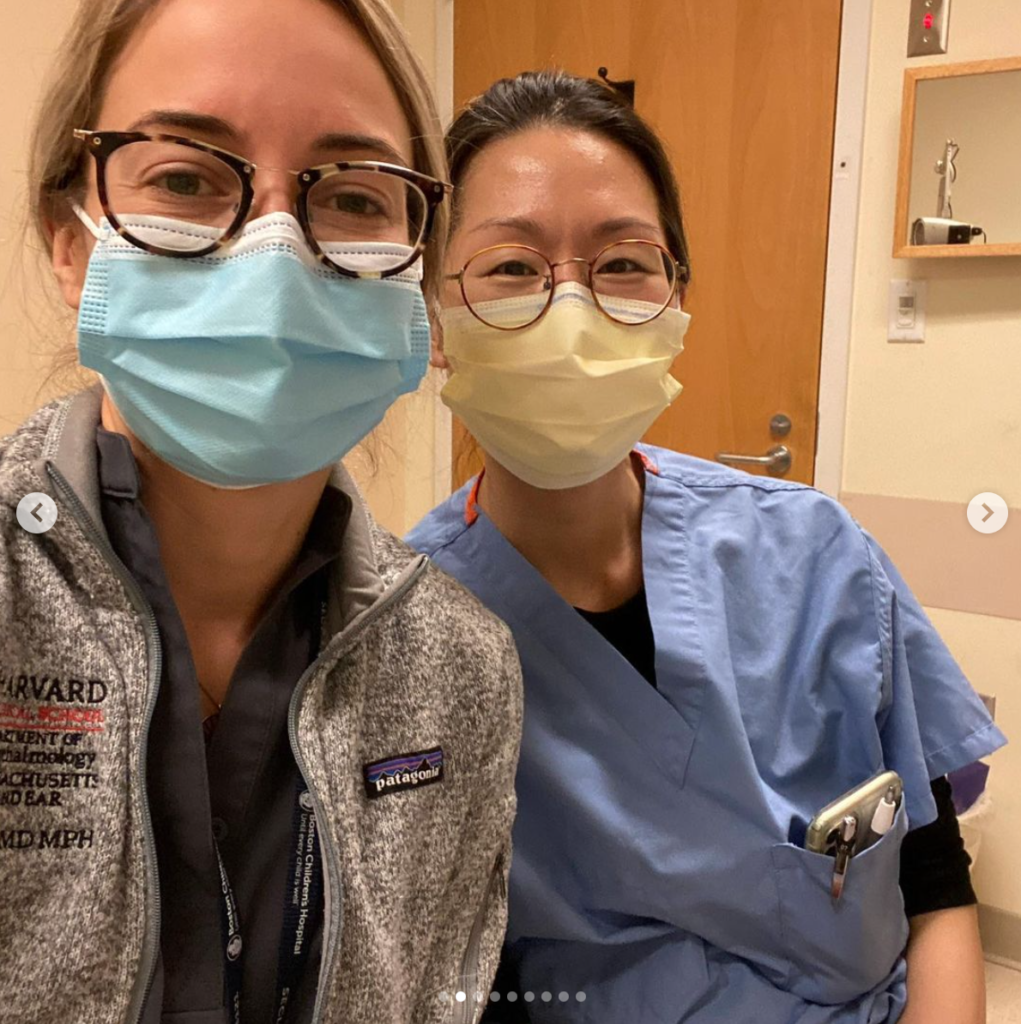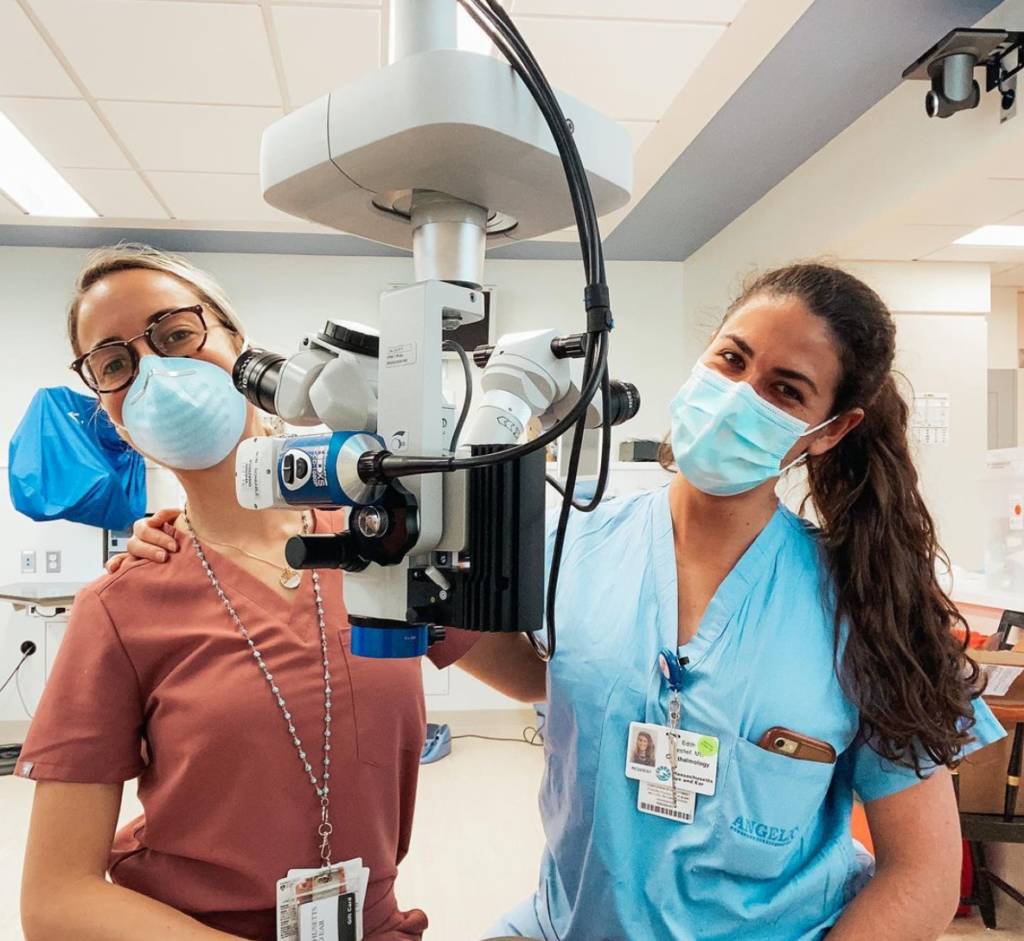
Dr. Sila Bal | Making a Difference In Ophthalmology
Meet Dr Sila Bal @dr.eyebal a MD in Ophthalmology out of Massachusetts, Boston. She did her intern year at Pennsylvania Hospital in Philadelphia – which is the same hospital she was born in. Talk about a full circle moment! Originally from Turkish origins, she is the first in her family to pursue a medical career. During our interview she mentioned something so interesting about the resilience needed in this practice. She states “we’re in a very challenging field and it’s changed a lot in the past 20 years, in a way that doesn’t necessarily always favor physicians. It’s easy to get burnt out. Comedy helps a lot! It really does – you could be crying but if you can make fun of it at the same time, it really helps.” Head over to her TikTok for some fun videos about the life as an MD! More on her story below.
Tell me about the difference in your last year residency?
It’s four-year residency but the first year is an internal medicine intern year, so the first year and the second year are pretty intense because you’re basically an intern twice and then, you know, as you build seniority, you get to do more surgeries and you get to participate in the care that you hope to do as an attending, rather than all the baseline internal medicine work or junior resident work.
Did you stay in Boston throughout, or did you get moved around?
I did my intern year at Pennsylvania Hospital in Philadelphia—that’s actually the hospital that I was born in, and I was really excited to do it there. Actually, as a medical student, I rotated there during my OB GYN rotation and delivered my first babies there! Then for residency, I moved to Boston and now I’m at Massachusetts Eye and Ear, which is the Harvard Ophthalmology.
Do you plan on staying in Boston afterwards?
We’re applying—my husband as an emergency medicine resident—so we’re applying to fellowships now. We’ll see where that takes us, and then, you know, we’re not really tied down to any region of the United States. We’re keeping an open mind.
Do you have to do a fellowship in ophthalmology?
Oh, so it’s by choice so you can finish residency. If you want to specialize further in certain surgeries, you can do a fellowship or you can just graduate and be a cataract surgeon and a comprehensive ophthalmologist (so, take care of people’s overall eye health and perform cataract surgery). I’ll be doing a fellowship in cornea and refractive surgery, which is surgery on the anterior surface of the eye—the clear part of the eye that sees. They’re also the eye doctors that perform site saving eye transplants. The medical technology we have right now, obviously we can’t transplant an entire eye, but what we can do is we can transplant the corneal tissue or parts of the cornea. They’re the surgeons that do that. I’m really excited about that.

That’s interesting, so can you then go into private practice?
Exactly! I think I will most likely be in private practice, but I’m also really passionate about global health. I actually have a master’s degree in public health with a concentration in global health. I want to be in private practice, but I still want to do a lot of academic work in the sense of global education, surgical training, transfer of skills, and things like that.
When you say global health, is it community service in the sense of helping your community?
Absolutely—so, because I have a degree in public health, obviously I strongly and firmly believe that global health starts in our communities, right around where we live. It’s a lot of managing different populations, different communities, health disparities. I do a lot of research on differences in eye care access and outcomes in different communities, just trying to understand how we can overcome barriers to care and things like that. A lot of that work is actually just right here in our own hospital system, and then, of course, obviously also abroad and trying to figure out how we can decrease the disparities between health care delivery here and abroad.
And what brought you into the medical field?
I think, you know, I wasn’t sure out of college or out of high school what I wanted to do. I was always very science driven, so I went into undergrad as a biology major and then I spent my summers working for nonprofits abroad in different countries across South America and Asia. I realized that I wanted to work in global health. And honestly, I thought that I was going to go to medical school and then graduate and join MSF and work in conflict zones and like, never live in the United States and not really have a house and just bounce from country to country. But I think, as I got older and spent more time working in public health abroad, I realized that I could do more meaningful work if I settled down, chose a specialty, really honed my skills, and then worked to transfer those skills, rather than living this crazy lifestyle. It’s one of those things you dream about when you’re young because you don’t fully understand what it means. And then, as you get older, you change that dream and it grows with you.
You’ve always had that side of you—the traveling?
Yeah, so both of my parents are Turkish—I’m a first generation American. I grew up multiculturally and traveling a lot, just because both my parents are also very passionate about traveling and so it was just a natural progression from what I had been raised doing to where I am now.
Your parents, are they in the medical field too?
No, I’m the first doctor in my family—the first healthcare worker in my family!
The first woman, too!
Exactly, a lot of firsts!
You didn’t really have any mentors or people that were in your circle that did medicine, did you? So, having done it by yourself, what was the inspiration? Or how did you develop the confidence to be like, “I’m going to go and do this.”?
it’s very difficult to find mentors, especially when you’re young. I think that, you know, my peers that had family members in medicine had a lot more insight about how to navigate the system. I really didn’t, but I think it’s just one of those things where, if you’re motivated enough—like, I think one of the things that I tell students when they ask me, “what are the most important factors in success,” and things like that, is just that you need to advocate for yourself and be self-driven. I think if you have those qualities, then you’ll figure it out. You will find mentors. You will find opportunities. You just need to have confidence and stay true to the things that you’re passionate about, and things will fall into place. I think that I was fortunate in that—I was always very self- driven. It’s not like I’m special or anything, it’s just something that was part of my temperament, so I was lucky in that way. That helped me a lot to navigate applying to medical school and being in medicine without necessarily having those close family mentors.
Would you also think resilience was something that you needed to develop or to have?
Absolutely, I think, across the board. I mean, if you follow my TikToks, you know that it’s very challenging to be resident, it really is to be a medical student and a resident. You sacrifice a lot of, not only your time, but also of yourself. These are years where a lot of our peers are enjoying exploring what it means to be a young adult and what it means to interact with your peers and things like that. Whereas people that are in medical school and residency spend a lot of their mental and emotional energy just focused on learning medicine and taking care of patients. It can be very draining, and so if you’re not resilient, it’s very difficult to get through this. You need that resilience, not only to, you know, get through all the exams, get through all the applications, be a competitive applicant, but also just to survive and be a good doctor and fight for all of those things. I think that we’re in a very challenging field and, you know, it’s changed a lot in the past 20 years, in a way that doesn’t necessarily always favor physicians and absolutely doesn’t favor the residents or the trainees. It’s easy to get burnt out. Comedy helps a lot like! It really does—you could be crying, but if you can make fun of it at the same time, it really helps.

Are you on call as well?
Yes. We’re on call all the time. It’s very, very challenging to be on call, and it’s also very challenging to be sleep deprived. All of those things tend to break down your emotional barriers and make you very bone brittle.
It’s going to be perfect training for motherhood.
Yeah, exactly! I actually have some friends that are residents that have babies or are currently pregnant and they’re just like, “oh, it’s going to be no big deal at all.” At least this time when you get a call, it’s something you love endlessly rather than another doctor on the line asking you like silly questions, it seems, at 3:00 AM.
Looking into your future and into your career path that you’ve chosen, what would be your ideal position in the next five years? Either a longer-term plan or just kind of a goal?
I always say I have a million—my husband would agree with that too! I have like a million plans all the time but, you know, life has this funny way of taking the best laid out plans and turning them upside down. It’s always better to be attached to the things that you’re passionate about and the things that bring you life, rather than concrete plans, because it’s almost guaranteed that the plans are all going to fall apart and be a shambles. As it stands currently, I think I’d really like to, I was mentioning earlier, be in a private practice setting, which is kind of rare coming from the institution that I’m coming from and honestly, rare for me because I thought for a very long time that I would stay in academics and that I would be an academic ophthalmologist. I think that I’ve found this new world in which I can be in private practice, delivering care to a more remote community—a community that’s not necessarily in one of the major cities—and also still work on clinical research. I think that a lot of people think that you can’t do research outside of academics, but I think that, from what I’m learning, you certainly can. It’s definitely something that I want to be involved with moving forward.
Obviously, the thing that brings me the most life is working within global ophthalmology, so I work very closely with an organization down in Ecuador. I hope to continue working with them to improve delivery of care in those communities, but also to continue with different organizations around the world and try to figure out how we can train more eye surgeons and how we can get access to sight saving eye surgery to more patients. That would be my dream. Again, it’s better to give the general things that I would enjoy, rather than say, “this is exactly what I want,” because I know that those things don’t always work out.
Why South America? Is Ecuador just one place that you’re looking at?
I actually first connected with that organization when I was doing my public health degree and I spent a summer down there working as an intern and then I stayed working with them after that. I think I’ve been working with them for 4 years now. I went down again during residency when I was a first-year resident and worked with them for a brief period of time and I do lectures for students there. I work with them on different projects, so I think I’ll continue to work with that organization in particular—for no reason of it being South America other than I have that relationship with them, and I I know that they do a lot of really meaningful work. I’d love to be involved with any organizations that have a need and that I build a relationship with which progresses naturally over time.
And overall, what would make you feel like you’ve really succeeded in your craft?
I think that success has so many layers, honestly, like it really does. There’s personal success in achieving a surgical outcome that you didn’t think that you could. And then there’s patient success when one individual patient tells you how grateful they are for their site or for some medical or surgical treatment you did, which is obviously extremely meaningful. But then there’s also success in the sense of “Did I lead the career path that I wanted?” I was actually listening to a Ted talk recently where someone was talking to Hospice patients about what their five biggest regrets were, and they interviewed hundreds of Hospice patients. The number one biggest regret was that people wished that they had lived a life truer to themselves instead of people’s expectations of them. And so, I hope that my measure of success will be that I always made decisions that were true to the things that I believed in, and the things that I cared about, and that I equally manage my patients in a way that I feel proud of, and that patients will take pride in as well.
Is it also because, when you’re younger, you obviously have the impostor syndrome more?
Totally—and you have it when you’re older too, it never fully goes away. You doubt yourself all the time, but the more you have successes, the more you realize, “OK, I can do this. I can do this.” If I can’t do this right now, I’ve seen myself grow from not being able to do something to being able to do it excellently, and so I know that this too will be the same. It will be OK.
In your field, is there much continuing education?
Oh yeah, this is one of those fields where you learn until the day you die, basically. My mentor in medical school, Gil Binenbaum—he’s now the director of Pediatric Ophthalmology at the Children’s Hospital of Philadelphia—but I truly credit him for bringing me into ophthalmology, making me passionate about ophthalmology and vision, and teaching me so much about what it means to be a doctor and what it means to be a researcher, but also about life. One of the first books he told me to read was “Zen Mind, Beginner’s Mind,” it’s a book in the Zen Buddhist School of Thought.
Essentially, it is just saying that like, “Everyday in everything that you do, you should approach it with the mind of a beginner.” At no point should you say “Oh, I know everything,” because as soon as you do that, you lose sight of what is most important and what is essentially the essence of life and being and learning and to be humble as a human being. I always try to approach things like that because as soon as we start to think that like “oh OK, I got this, I know everything,” then everything falls apart.
What advice would you give yourself, looking back to the beginning of your medical journey? Either your first-year residency or even before you applied?
I actually gave this advice recently—in Ashtanga yoga, there’s a saying that yoga is 99% practice and 1% theory. I think that in residency, you—especially early on—you get really overwhelmed by the amount of new information that you’re learning and the number of things that you don’t know, and it can be paralyzing sometimes. The best advice, I think, is that it’s just practice. You just keep practicing and you keep trying and you see more patients and you do it again and again and again and eventually it clicks. No matter what. As long as your heart is in the right place and as long as you care about becoming a good doctor, it will click into place. I think that that can sometimes be hard to imagine when it feels like everything is so overwhelming, but it’s just practice, everything is practiced, you just do it over and over again and then it becomes easy suddenly.
Follow her medical journey on Instagram @dr.eyebal
Get your hands on the latest tips and tricks of what it means to be a #GOSS. In this free e-book you will dive into 11 business traits that will help you grow your business!
11 Ways To #BeGossy E-book
FREE DOWNLOAD
Find out more inspiring stories from women worldwide of all industries. Follow us on Instagram @GossMagazine.
website design Credit
© Goss Club Inc. 2024 | all rights reserved |
Inspiring & empowering women worldwide.
© GOSS CLUB INC. 2024 | all rights reserved
Share to: